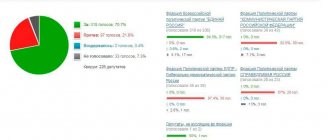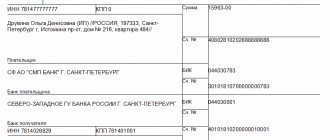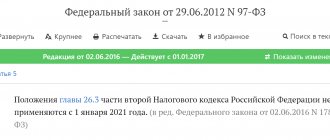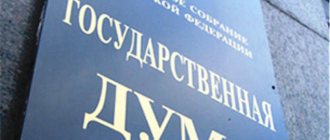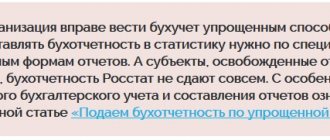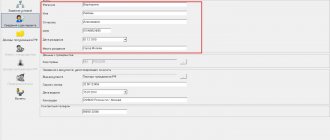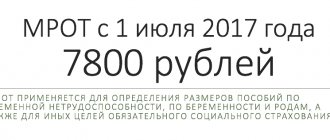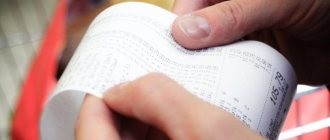From January 1, 2021, one of the important amendments to the Tax Code of the Russian Federation regarding VAT comes into force - an increase in tax rates (for changes to VAT that are in effect both from 10/01/2018 and 01/01/2019, read the article “Increasing VAT and other tax innovations").
The basic VAT rate will be 20% instead of the current rate of 18%. However, the norms of the Tax Code do not provide for rules for paying VAT during the so-called transition period. For example, when payment was received before the rate increase (in 2018), and shipment occurred after the increase (in 2021). The Federal Tax Service of Russia issued a letter in which it explained the procedure for applying VAT in the transition period.
According to the Federal Law of 08/03/2018 No. 303-FZ, from 01/01/2019, VAT rates are changing: the main VAT tax rate - from 18 to 20%, and settlement rates - from 18/118 to 20/120 and from 15.25 to 16 .67%.
The Federal Tax Service of Russia, in a letter dated October 23, 2018 No. SD-4-3/ [email protected], explained the procedure for applying VAT in the transition period.
Who will be affected by the new law?
The innovations will affect entrepreneurs who charge their clients and counterparties VAT . Obviously, these are companies subject to the general tax regime - OSN. Payers of UTII, PSN and simplified taxes will not be affected in any way by the innovation. They will not have to change accounting, reconfigure online cash registers or update software.
Also, nothing changes for those who work at a reduced VAT rate - 10% or 0%. These are sellers of medical and children's goods, books (10% rate) and those who issue licenses and collect duties (0% rate).
However, if you do not work with VAT, do not rush to rejoice. Even if technically everything remains in place, there are some things you should prepare for. This is the next point.
Which tariffs remain unchanged?
The changes affected only the standard duty of 20%. Preferential rates remained at the same level .
In addition to the standard rate, the Tax Code also provides for preferential duties . Regulatory acts distinguish the following groups of taxpayers:
- Companies that are completely exempt from VAT.
- Enterprises subject to a preferential rate of 0%.
- Payers of duty in the amount of 10%.
- All others - with a rate of 20%.
What all entrepreneurs need to do, regardless of tax regime
What is a VAT increase on the fingers? This is a price increase. From January 1, 2021, everything you buy and order from contractors who charge value added tax will become 2% more expensive . This is on average. Some of the suppliers will quietly raise prices higher, others will sacrifice their profits and raise prices, say, by a percentage. But it is a fact that purchasing prices will generally increase.
Therefore , the first thing you need to do is prepare for additional expenses . It will be the hardest for those who conduct business at the limit, penny to penny. In any case, reserves need to be found. Then this money will come back - after all, you yourself will most likely raise retail prices for your goods or services. But at first you will have to spend a little more.
How to prepare for a VAT increase
Update software. This applies to the 1C Accounting program and similar ones. From January 1, 2021, the system should begin to charge value added tax at a rate of 20%. If you have a licensed version of the program, this will not be difficult - just download and install the appropriate updates. If you encounter any difficulties, please contact technical support.
If you don’t have time and don’t want to upgrade programs, you can turn to specialists. This is especially true for non-standard 1C configurations. There are plenty of offers for this service on the market. An experienced programmer or system administrator will easily solve this problem.
Procedure for issuing an invoice
From the second half of 2021, a goods traceability system will be in place, which was created to legalize the circulation of goods in the EAEU. Such a system will help prevent the entry of counterfeit products into the Russian market and will contribute to the growth of the competitiveness of domestically produced goods.
The Government of the Russian Federation will develop a list of goods that will participate in the traceability system, as well as the procedure for providing the necessary information to the Federal Tax Service.
For those who use online accounting
Many online stores use online accounting provided by banks, fiscal data operators and other companies. These are the luckiest of all. Service providers are already working hard on this issue and, for the most part, are ready for the transition. Users of online accounting are beginning to receive notifications with detailed instructions for the transition.
If you use online accounting, contact your online accounting partner and request a plan of action. In most cases this will be free. All systems will automatically switch to a 20% VAT rate from January 1 next year.
Payment of interest in case of delay in VAT refund
Until January 1, 2021, if tax officials delayed payment of VAT refunds, then interest could only be received by drawing up a corresponding application and sending it to the Federal Tax Service. Moreover, this had to be done before the inspection made a decision.
Now there is no need to submit an application to the Federal Tax Service - tax inspectors will independently calculate compensation for the delay in VAT refund. Interest for late reimbursement will be accrued for each day of delay based on the current refinancing rate of the Central Bank of the Russian Federation.
This rule is enshrined in paragraph 10 of Art. 176 of the Tax Code of the Russian Federation.
What should I do if I do my accounting the old fashioned way - in an Excel spreadsheet?
The program will need to change all formulas and templates. Instead of 18 percent, we set 20 (or 120 instead of 118), after which the system itself will begin to calculate prices in a new way. You can do this yourself or contact a specialist. If you have an accountant or system administrator on staff, entrust this work to them.
The only nuance here is to catch the right moment. We explain: the program should start calculating VAT at 20% from the first of January . If in the case of 1C or online accounting this happens automatically, then with Excel everything will have to be done manually. That is, you will have to change formulas with templates on the night of December 31 to January 1. Or before the first working day after the New Year holidays.
New VAT return
When submitting reports for the fourth quarter of 2021, taxpayers must use the new VAT return form, which has the following changes:
- new barcodes
- There is no longer a need to indicate OKVED information on the title page
- Section 1 has been adjusted to reflect information on the protection and promotion of investment
- The list of codes for the gratuitous transfer of property that was used in the fight against coronavirus infection, as well as for the study of Antarctica, has been expanded
- codes have been added for services provided by international airports and for the management of municipal solid waste
- new codes for IT companies
What to do with the online cash register
The cash register must punch a receipt with a VAT rate of 20% from January 1, 2021. To do this, the device needs to be updated . The change in the VAT rate is also tied to a change in the format of fiscal documents - FFD. For those who are not in the know: a cash receipt is a fiscal document. And from next year it will be different - the composition of the details indicated on the check will change.
Nowadays, most cash registers work with FFD version 1.0. To switch to work at the new rate, they need to be updated to version 1.05. After updating, the receipt will automatically indicate the new VAT rate - 20%.
How can you find out the version of the FFD your cash register uses? There are several ways to do this:
- look at the shift opening report. This is a small receipt that the cash register prints out when it starts at the beginning of the working day. The current version of the format of fiscal documents is indicated there;
- There is also an indication of the FFD in the online cash register settings. Study the menu and find the item “FFD version number”;
- go to your personal account on the website of your fiscal data operator - OFD. There, the FFD version number can be found in any cash receipt;
- in the personal account of the cash register, the version of the fiscal data format can also be indicated. Go to the “Terminals” item and see if the FFD number is there.
If the version number of your FFD is 1.0, the cash register needs to be updated to version 1.05 . You can set up the cashier’s workplace yourself or contact the company that sold you the cash register. When working independently, be careful: incorrect actions can block the cash register or lead to the replacement of the fiscal drive.
If you have FFD version 1.05, you don’t need to do anything. Everything will happen automatically and from January 1, VAT rates on cash receipts will change from 18 to 20 percent.
In addition to the format of fiscal receipts, you may have to reflash the cash register itself . Check with the supplier or manufacturer of the cash register device whether the device is ready to work under the new law and changes in the VAT amount. Also carefully monitor notifications from the fiscal data operator and the online cash register manufacturer. Important information regarding the transition may appear there. Information can be sent to your email, to your personal cash register account, or to the cash register itself.
What are other news
- changed the list of goods taxed at a rate of 10%;
- the procedure for submitting documents to confirm the export of goods has been changed;
- a new procedure for taxing advances upon transfer of property rights has been introduced;
- there are new liberations;
- A special procedure for taxation of waste paper has been adopted.
The seminar will tell you how to work with these changes.
What happens if you don't update your cash register?
Nothing good. Firstly, if you do not change the format of fiscal documents to the current version, the cash register may generally stop sending OFD data to the tax office . In the worst case scenario, this could be classified as operating without an online cash register at all. The fines for such tricks are the highest - from 30 thousand rubles for legal entities. Individual entrepreneurs will pay a little less - from 10 thousand. If the VAT rate is not changed from 18 to 20%, the violation falls under the article on the use of cash register equipment that does not meet the established requirements. For this, an individual entrepreneur will pay from 1.5 to 3 thousand rubles, and an organization will pay from 5 to 10 thousand.
Don’t forget that the cash register is online to keep all entrepreneurs under control. The tax office will see immediately that you have not changed the VAT amount - it only needs to make a request to the fiscal data operator.
But there is also good news. According to a letter from the Federal Tax Service dated December 13, 2021, no one will be fined during the first quarter . This time is given to those who did not have time to update their cash registers to work with the new VAT rate. According to some data, there are about 40% of the total number of registered online cash registers.
In this case, the VAT rate of 18 percent will be indicated on the cash receipt, but in all reporting documents the tax must be 20%. Selling goods and providing services also requires VAT of 20%.
On which goods VAT will increase to 20%
Law No. 303-FZ on increasing VAT to 20% did not change the rules and procedure for applying the zero and 10% tax rates. This is also stated in the clarification of the Ministry of Finance (letter 03-01-11/60358).
The list of preferential categories is listed in the first and second paragraphs of Article 164 of the Tax Code of Russia.
What goods are subject to 20% VAT? These are products not listed in the above paragraphs of the Tax Code, for example:
- household chemicals;
- wardrobe items;
- sporting goods and so on.
Attention: export products from the above product groups are subject to preferential taxation - 0%.
How to switch to payments to suppliers? What to do with contracts?
Everything would be fine, if not for one “but”. Mutual settlements with suppliers, contracts and balance sheets are not reset to zero at the click of a finger from December 31 to January 1. There are a million options related to deferred payments, advances and prepayments. What to do if the goods were shipped in 2021 at a tax rate of 18%, and you will only pay for it next year, when VAT of 20% will apply to everything? And vice versa, did you pay in advance for products that will only be delivered to you next year? At what rate is it calculated?
The tax office itself answered these and many other questions in its explanatory letter dated October 23. The document explains the specifics of applying tax rates during the transition from 18% to 20. We will provide several examples from this letter.
Example 1 - the supplier delivers goods, fully paid for in 2021, only at the beginning of 2021. In this case, the tax on advance payment is calculated at the old rate of 18%, and the tax on shipment is calculated at 20%. In this case, the advance tax should be reduced.
Example 2 - the goods were delivered in 2018, but in 2019 the price for the already delivered products changes. In this case, as before, the seller makes changes to the adjustment form, and the tax is calculated based on the rate of 18 percent.
Example 3 - the buyer refuses the goods paid for in 2021 at the beginning of 2021. An adjustment form is also needed here. The seller issues an invoice for the refund amount using the old VAT rate of 18%.
Who is affected by the VAT rate change?
The new rules affected everyone who previously paid the standard duty of 18%. According to the Tax Code, all legal entities (both commercial and non-profit), as well as individual entrepreneurs, must do this. Payment is made not only for goods sold in Russia, but also for any imported objects.
The changes affected not only standard rate payers. The amendments included in the list of tax agents those whose activities were previously not subject to duty . These include:
- Agricultural enterprises . The special tax regime (UST) applied by organizations of this profile no longer gives them the automatic right to exemption from VAT (clause 12 of Article 9 No. 335-FZ of November 27, 2017). The law provides for separate rules for the exclusion of agricultural companies from taxation, but to receive the benefit you will need to submit an application to the territorial branch of the Federal Tax Service with proof that the enterprise’s income for 2021 did not exceed 100 million rubles. (Clause 1, 3–5 of Article 145 of the Tax Code as amended on November 27, 2018 No. 335-FZ).
- Companies engaged in the sale of paper waste . This type of activity is now also subject to tax (clause 31, clause 2, article 149 of the Tax Code of the Russian Federation).
- Companies that purchase paper waste . Now they will calculate VAT, even if they themselves are exempt from paying tax (clause 8 of Article 161 of the Tax Code of the Russian Federation).
- Foreign companies providing electronic services . From 2021 they become tax agents and are required to pay VAT. To do this, they will need to register with the tax office. Previously, the obligation to pay duties for trade in such services rested entirely with the Russian purchasing company. Now domestic enterprises will be able to deduct the tax and will be exempt from it. Electronic services include: online advertising, access to electronic storage, etc. (clause 9 of article 174.2, clause 2.1 of article 171 of the Tax Code of the Russian Federation).
Some tips on how to act during the transition period
Tip 1 - close all transactions as much as possible before the end of the year. Pay suppliers for shipped goods before the end of the year. If possible, do not make advance payments so as not to get confused later.
Tip 2 - ask suppliers to deliver all orders by the end of the year. From the letter from the Federal Tax Service it is clear that goods supplied in 2021 are subject to 20% VAT, even if they were paid for in 2018. To avoid these difficulties, agree with your counterparties on shipment before the end of the current year.
Tip 3 - hire an accountant for the transition period. You can easily get confused yourself. If there are many suppliers and lots of goods, there is a risk of confusion with VAT rates during the transition period. An experienced specialist will take into account all the nuances and calculate taxes correctly. A very good option is to connect online accounting. Check with your bank to see if they provide this service.
Let us remind you: if you open an online store on the InSales platform, you don’t have to worry about accounting . Your website will have hundreds of ready-made integrations, including with online accounting. If you do this before the new year, then there will be no problems with the transition to new VAT rates. You can also transfer an already operating online store to the InSales platform, and then connect online accounting.
Budget subsidies and investments
Deduction of "input" tax
Clause 2.1 of Article 170 of the Tax Code of the Russian Federation sets out the rules for companies and entrepreneurs who purchase goods (including fixed assets and intangible assets), work, services or property rights using funds received from the budget.
It has been established that in such transactions taxpayers do not have the right to deduct “input” VAT, including that paid at customs. From January 2021, this norm will have an addition for the case when budget money is spent on paying not for the entire purchase, but only for part of it. Then the ban on submitting a deduction will not apply to the entire “input” VAT, but only to its share. It is proportional to the part of the purchase paid for from budget money. The proportion should be drawn up taking into account the “input” VAT, which is contained in the cost of purchased goods, works, services or property rights.
In addition, the updated version of paragraph 2.1 of Article 170 of the Tax Code of the Russian Federation specifically states: if a subsidy is provided for the payment of VAT at customs, the importer does not have the right to deduct the tax.
Buy the “Kontur.Declarant” service for generating and sending customs declarations
There are also changes regarding the accounting of “input” VAT, which is paid from budget funds and, as a result, is not accepted for deduction. Now everything depends on whether the taxpayer keeps separate records of the amounts of “input” tax paid from budget money. If it does, then the tax can be written off as an expense, but if it doesn’t, it cannot be written off. From January 1, 2021, the presence or absence of separate accounting will cease to play any role. From this date, the following rule will come into effect: tax that is not accepted for deduction cannot be included in the cost of goods (work, services, property rights), but must be attributed to other expenses associated with production and sales.
Finally, from January 2021, a clause will apply in the event that the documents for the provision of subsidies or investments indicate that budget money does not go to pay “input” VAT. In such a situation, the company or individual entrepreneur retains the right to deduct tax in full.
According to part 7 of the article of the commented law, all of the listed innovations are applied in a situation where budget funds are received in 2021 and later.
Tax recovery
Subclause 6 of clause 3 of Article 170 of the Tax Code of the Russian Federation states that VAT previously accepted for deduction must be restored if the costs of purchasing goods (work, services, property rights) were reimbursed from the budget. Now this needs to be done regardless of whether VAT is included in the amount of subsidies (budget investments). From January 2019, the “input” tax will have to be restored only in one situation. Namely: if from the documents for the provision of budget money it follows that these funds are used, among other things, to pay for “input” VAT. If the amount of subsidies (budget investments) does not cover the tax, then it need not be restored.
Maintain budget accounting and generate reports in the Kontur-Accounting Budget program
At the same time, the updated version of subclause 6 of clause 3 of Article 170 of the Tax Code of the Russian Federation specifically stipulates: if subsidies (budget investments) are provided to reimburse VAT paid at customs, the importer is obliged to restore the tax previously accepted for deduction.
The rule will still apply according to which, in case of partial reimbursement of expenses from the budget, part of the deduction should be restored in a share proportional to the reimbursed part of the expenses. But the calculation of the proportion will change. Now it is compiled without taking into account the “input” VAT, and from 2021 it will be necessary to take this tax into account.
In addition, legislators have provided an innovation for the case when, when receiving subsidies (budget investments), it is not clear which costs for the purchase of which goods, works, services or property rights are subject to reimbursement from these funds. In such circumstances, part of the deduction taken during the calendar year preceding the year in which the specified budget funds were received should be restored. The portion of the tax subject to recovery is calculated based on the share of reimbursed expenses in the taxpayer’s total expenses, taking into account “input” VAT.
Carry out automatic reconciliation of invoices with counterparties
According to Part 8 of Article of the commented law, the clarified rules for tax restoration are applied in a situation where budget funds for reimbursement of expenses are received in 2021 and later.
Separate accounting
The provisions relating to the separate accounting of “input” VAT paid from subsidies and budget investments and “input” VAT paid from other sources have been adjusted. Now the obligation to keep separate records arises for each taxpayer at the time of receiving a subsidy or investment (clause 2.1 of Article 170 of the Tax Code of the Russian Federation). From January 2021, separate accounting will not always be needed, but only if it is not completely clear what specific goods (works, services, property rights) were allocated from the budget for the purchase. In this case, separate accounting will need to be applied not only in relation to the “input” tax, but also in relation to the full amount of expenses.
At the same time, a new subparagraph 7 will appear in paragraph 3 of Article 170 of the Tax Code of the Russian Federation. It is intended for companies and individual entrepreneurs that should keep separate records, but do not do so. Such taxpayers will be required in the last quarter of the year to restore part of the tax accepted for deduction in the current calendar year. The portion of the tax subject to restoration is determined in proportion to the share of subsidies (budget investments) in total expenditures. All taxpayer expenses incurred starting from the quarter in which subsidies (budget investments) were received are taken into account, taking into account “input” VAT. If it turns out that the amount of subsidies (budget investments) exceeds the amount of expenses, then the difference between them does not need to be taken into account when calculating the share in the current year. This difference should be carried forward to the next year and added to subsidies (budget investments) for future periods.
The amounts of the restored tax must be attributed to other expenses associated with production and sales. It cannot be included in the cost of goods (works, services, property rights).
According to part 7 of the article of the commented law, all changes regarding separate accounting apply in a situation where budget funds are received in 2021 and later.
Fill out, check and submit your VAT return online for free

